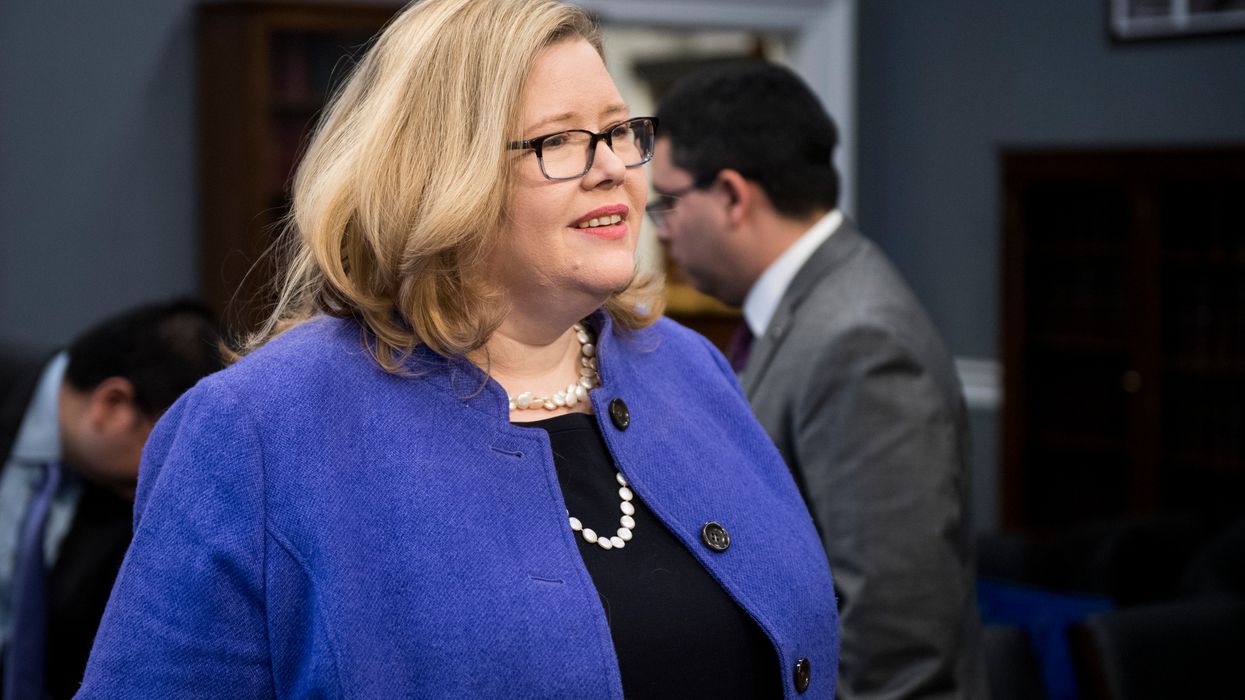The peaceful transfer of power, the final bedrock of American democracy that Donald Trump has the capacity to crack while he's still president, is now officially off to a delayed start.
Two days after Joe Biden claimed the presidency with a clear majority of electoral votes, the Trump administration has not followed through on the formalities that begin the transition. Each of the 72 days before the inauguration when that does not happen represents time unavailable for responsible, if not good, governance to prevail during a resurgent pandemic.
Instead, the president's lawyers signaled they were pressing ahead with lawsuits in a handful of states, none for now supported by credible evidence of significant election irregularities — let alone the fraud that Trump claims.
The General Services Administration, the agency that manages the bulk of government logistics, must formally recognize Biden has become the president-elect. Only then may his team start spending $10 million in transition funding, conduct background checks for ultimately 4,000 political appointments, and receive access to government officials and records meant to create a seamless handoff of executive authority.
As of Monday the GSA administrator, Trump appointee Emily Murphy, has not signed the necessary paperwork, known formally as an "ascertainment," or given guidance when she will. The law explaining how her agency should "ascertain the apparent successful candidate" appears murky, however, making a delay justifiable at least in the short term.
At the same time, the president has not conceded that he's lost to Biden and says he will soon appear to "discuss the Mail-In Ballot Hoax!"
The advisory board of the nonpartisan Center for Presidential Transition, made up of prominent members of both parties, prodded the Trump administration Sunday night.
"While there will be legal disputes requiring adjudication, the outcome is sufficiently clear that the transition process must now begin," said the panel, which includes former George W. Bush White House chief of staff Josh Bolten and Mack McLarty, who had the job for Bill Clinton. "We urge the Trump administration to immediately begin the post-election transition process."
There is no precedent in the modern era of a president erecting such hurdles for his successor. But Biden pressed ahead with the power available to him, naming a 10-person panel of coronavirus advisors and assembling teams of aides to work on budgeting, personnel and policy transitions at each department and major agency.
A month ago he announced an ethics plan for a potential transition, with rules designed to make it harder for lobbyists to work on the effort. The guidelines are similar to what Barack Obama set for his transition 12 years ago, generally barring formally registered lobbyists from working on the transition in parts of the government that regulate their clients' businesses.
This summer, the Trump administration also formally promised to provide a Biden transition team with office space, telephone and internet service, travel for the president-elect and national security briefings.
The GSA did not allow the 2000 presidential transition to begin until after the Floridia recount dispute was settled by the Supreme Court, just five weeks before the inauguration. The shortened process was later identified by the 9/11 Commission as contributing to the nation's lack of preparation for the attacks.
Some aspects of the transition can happen without GSA's signoff. Airspace above Biden's Delaware home has been restricted and Secret Service protection for Biden, Vice President-elect Kamala Harris and their families has been ramped up and turned over to the agency's presidential protective detail.
Meanwhile, Trump is pushing for recounts or to disallow batches of votes in a handful of closely contested states — with a focus of the effort in Pennsylvania, the state that all the major news organizations predicted on Saturday that Biden would win, its 20 electoral votes assuring his election. By Monday afternoon the president-elect's margin was almost 46,000 votes in the state, with just 2 percent of ballots to be tabulated.
Top election officials there and in three other battlegrounds with narrow margins — Arizona, Georgia and Nevada — say they have seen no widespread irregularities or fraud. News stories are increasingly quoting Trump attorneys as describing their legal efforts as more about helping their client confront the inevitable than about changing the outcome.
But most senior congressional Republicans, including Senate Majority Leader Mitch McConnell, have stayed quiet about the election result.




















Trump & Hegseth gave Mark Kelly a huge 2028 gift